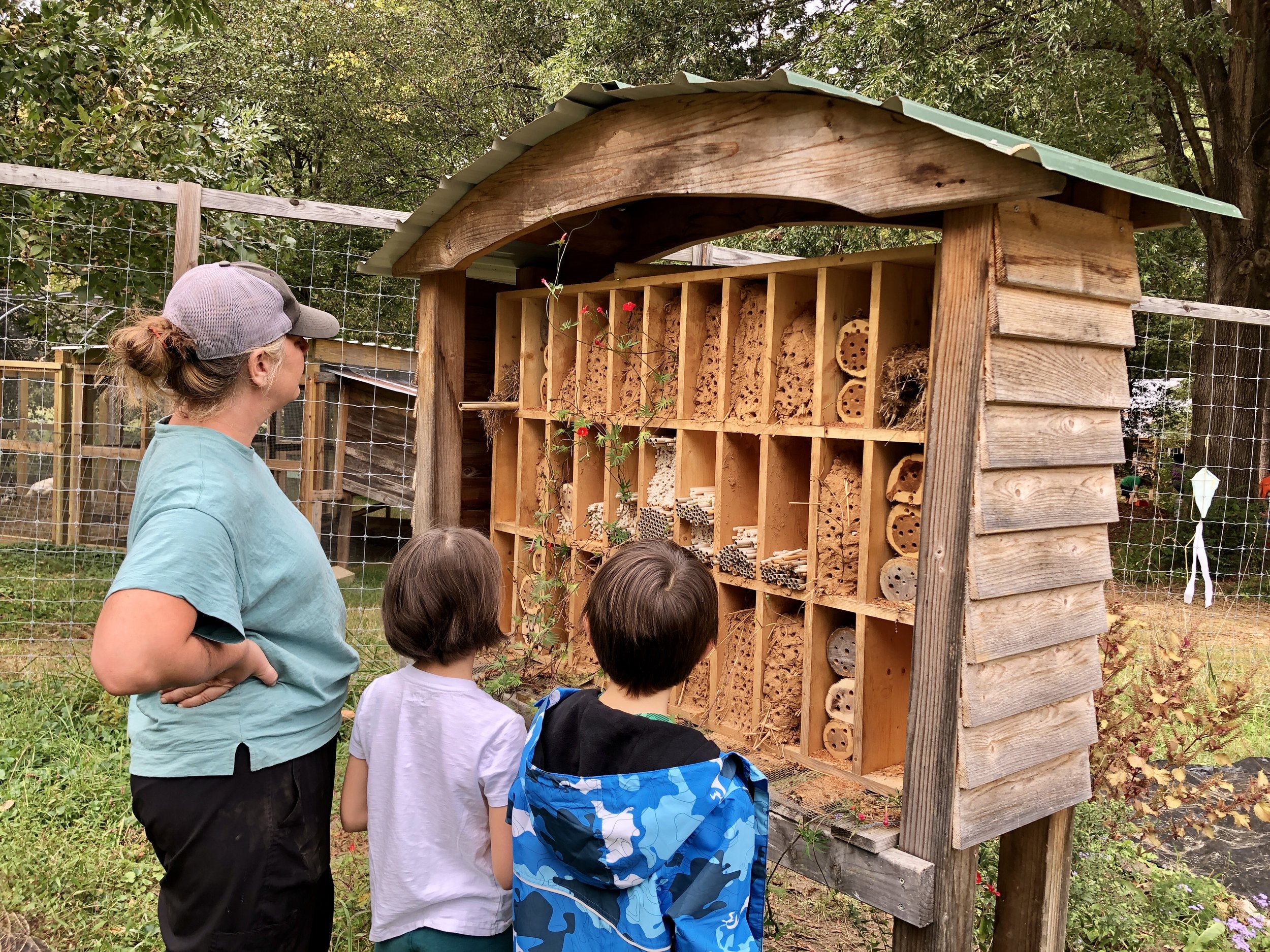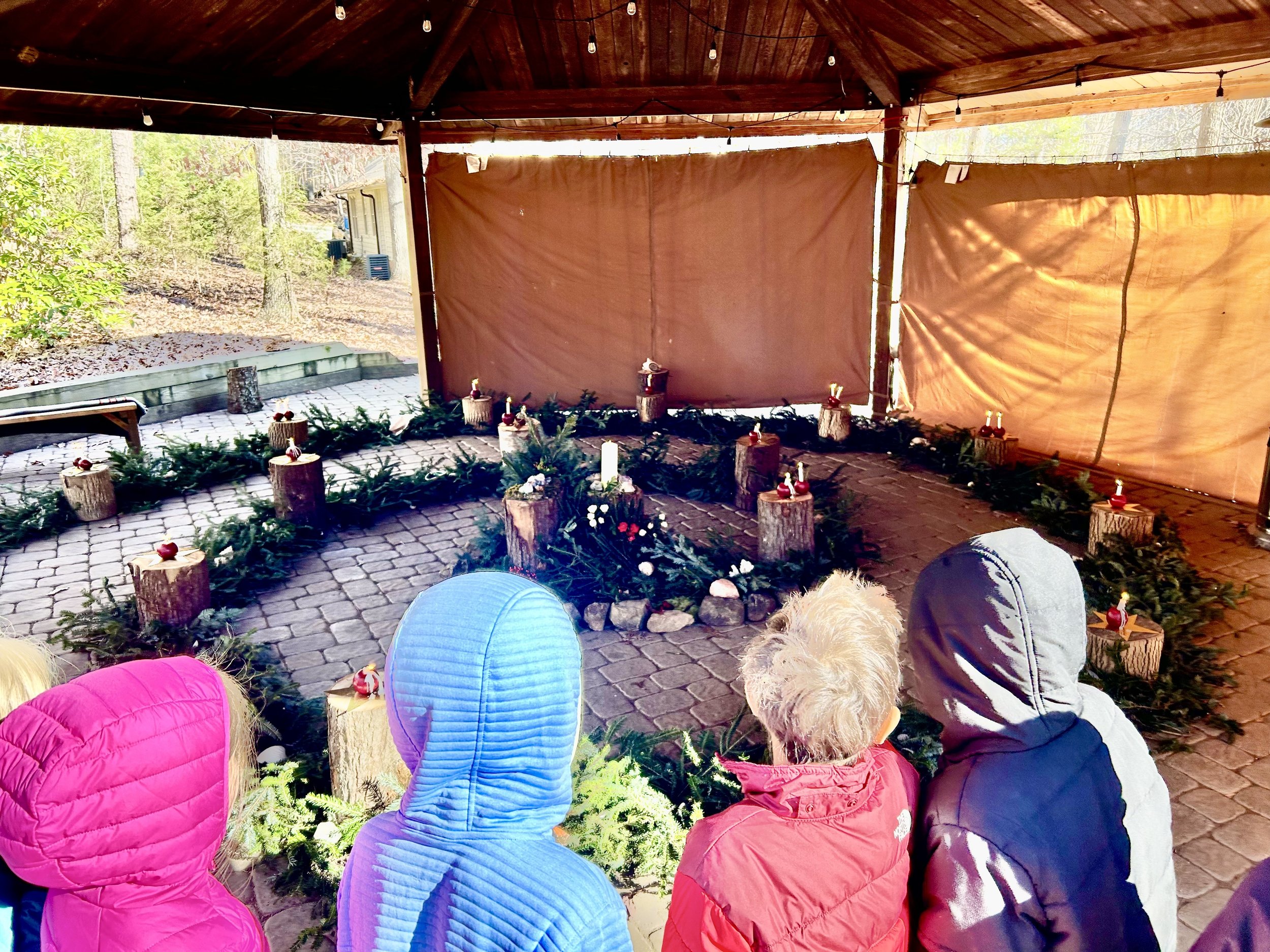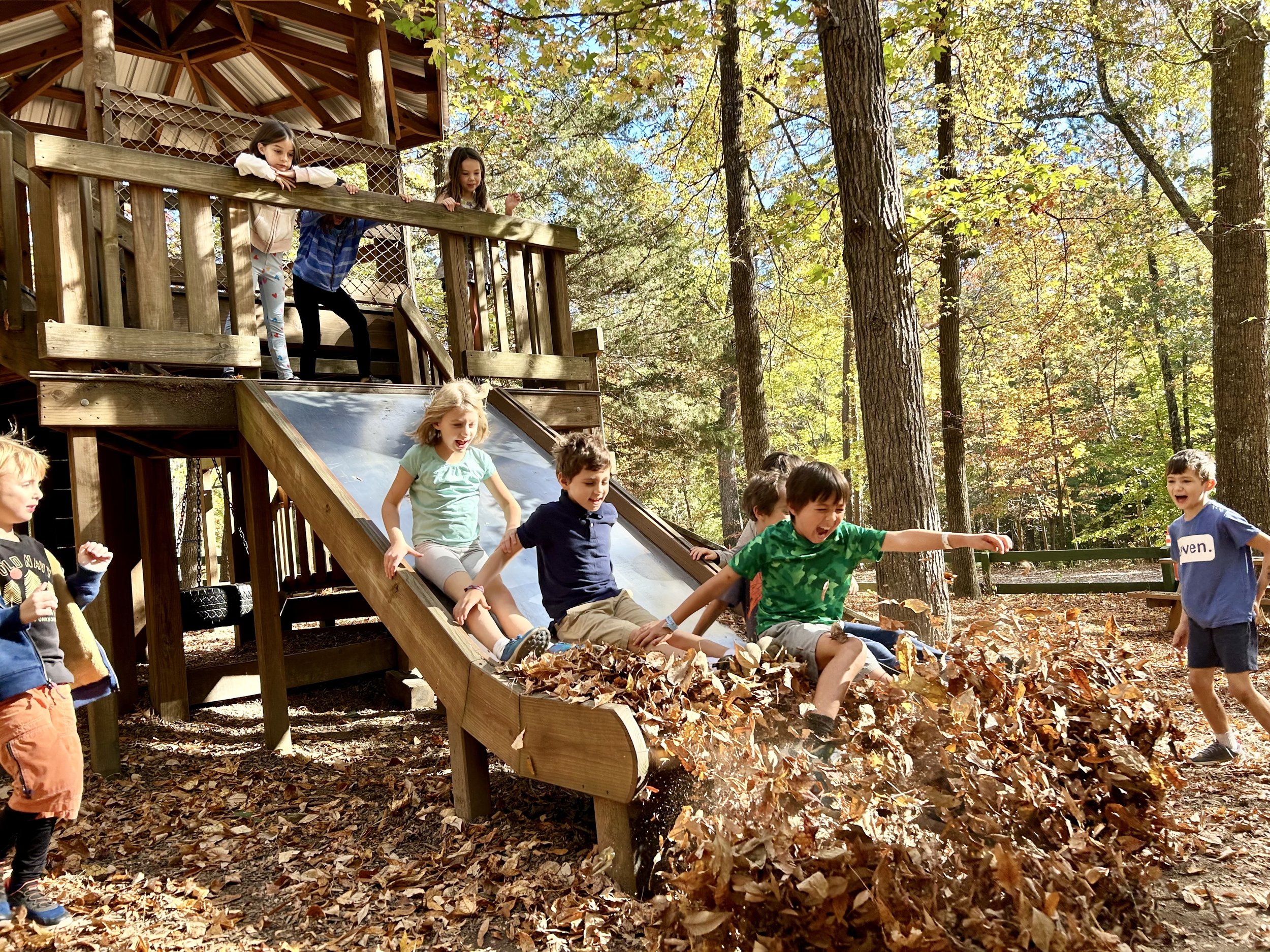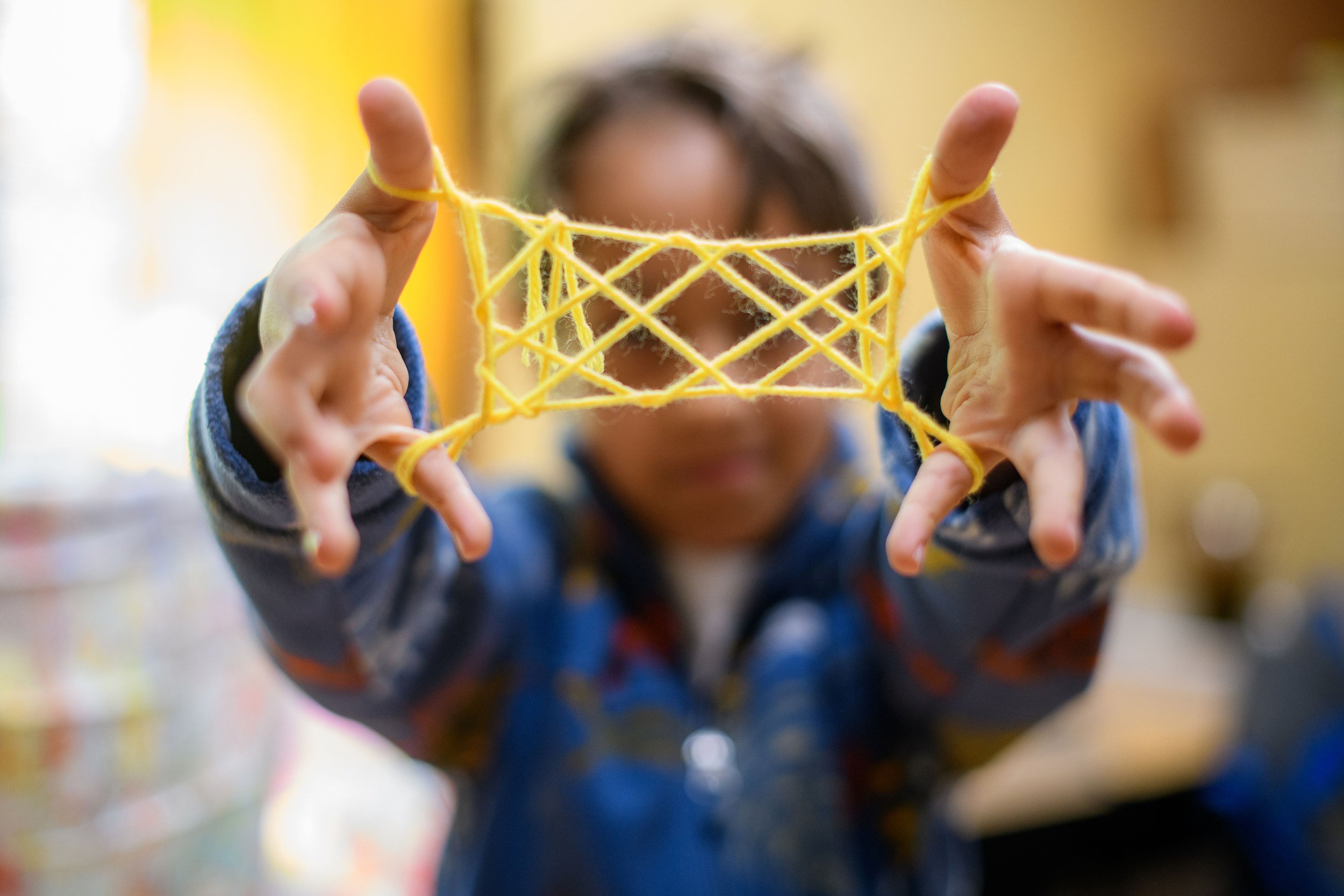
2nd Grade Curriculum
Between age seven and eight, the children are transitioning from a dreamy, fairy tale consciousness where the world is seen as primarily good, into a newly developing consciousness of the endless dualities of human nature. As the children mature, they begin to gain awareness of their own challenges and how they choose to meet them. For example, polarities such as patience vs. impulsiveness, kindness vs. selfishness, humility and arrogance are allegorically presented to the 2nd Graders. As they explore these themes in the curriculum, they begin to approach the delicate understanding of how their own personal choices define their character, and how one can grow towards goodness, beauty and truth. The 2nd Grader still loves to learn through games, including gross motor cooperative exercises and rhythmical movement activities. Additionally, they learn through fine motor exercises, poems, prose, verse and song. The 2nd Graders are eager and ready to learn and their motto is “practice, practice, practice.”
The scope of the 2nd Grade curriculum covers fables and legends drawn from diverse cultures. The students gain a profound intuitive grasp of human moral lessons presented through the characterization of various animals. At the same time, the highest moral striving of humanity is portrayed through the legends of individuals and their accomplishments.
The 2nd Grade curriculum focuses on deepening capacities. The blocks of study alternate between math and language skills as the students strengthen and expand the fundamental concepts introduced in 1st Grade. In math, the students strive to master columnar addition, rounding, multiplication tables, estimation, place value, simple long division, and more. In the area of language arts, they continue to further their knowledge of sight words and phonics rules, enabling them to “Crack the Code” of reading fluently. They also use these skills as they begin to spell more words on their own and write simple compositions.
The 2nd Grade year is rich and full of excitement as the children learn how to be a part of a class while exploring their independent natures.
-
Class and small group dialogue
Experiencing stories and envisioning themes and outcomes
-
Lower case letters
Parts of speech
Reading
Oral recitation
Drama
-
Nature study – qualities of animals
Continuation of the four operations
Concrete computation
Column addition and subtraction
Multiplication facts
-
Fables
Folklore
Legends of sages and heroes
Native American lore
-
Songs
Dances
Games
Poetry
Stories
Alphabet and numbers
-
Knitting and purling with pattern changes
Simple hand sewing
-
Beeswax modeling
Painting and Form Drawing
Linear forms
Mirrored forms
-
Currently offering:
Singing
Flute
Lyre
-
Cooperative Games
-





